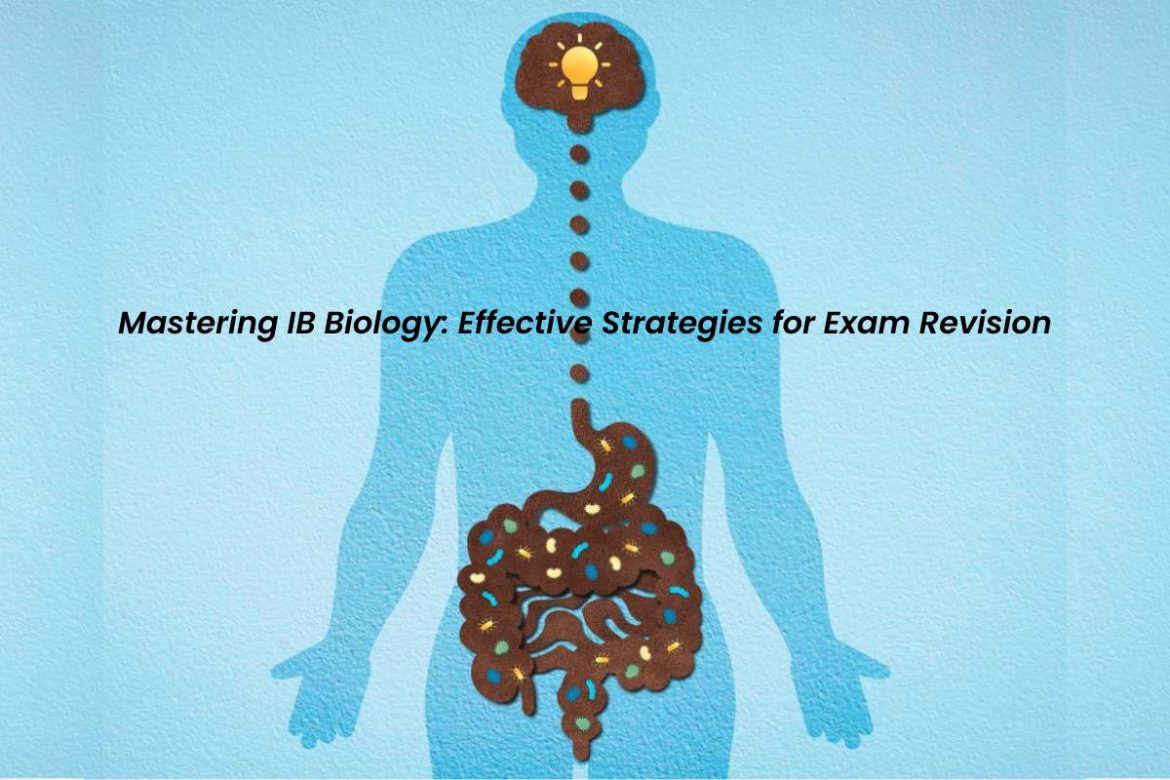Preparing for the International Baccalaureate (IB) Biology exam can be a challenging task, as it requires a comprehensive understanding of various biological concepts and their applications. Effective exam revision is crucial for success, allowing students to consolidate their knowledge, identify areas of weakness, and build confidence in their abilities. In this article, we will explore proven strategies and techniques that will help students master IB Biology revision. By following these guidelines, students can approach their exams with greater preparedness and increase their chances of achieving excellent results.
Table of Contents
Understanding the Exam Format and Content
Before diving into revision, it is important to familiarize yourself with the structure and content of the IB Biology exam. The exam typically consists of multiple-choice questions, data-based questions, and longer response questions. Understanding the weighting of different topics is also essential, as it allows you to allocate your revision time accordingly. By analyzing past exam papers and marking schemes, you can identify common question formats and prioritize your study efforts.
Creating a Study Plan
A well-structured study plan is essential for effective revision. Start by assessing your strengths and weaknesses in different biology topics. This self-assessment will help you identify areas that require more attention. Set specific goals and targets for each study session to keep yourself motivated and focused. Additionally, allocate study time to different topics based on their weighting in the exam. A balanced study plan will ensure comprehensive coverage of the curriculum.
Utilizing Available Resources
Make the most of the resources available to you during your IB Biology revision. The textbook and class notes should serve as your primary sources of information. Read and review them thoroughly, making concise summaries of key concepts and processes. Additionally, leverage online resources such as reputable websites, educational videos, and interactive apps that provide supplementary explanations and practice questions. Collaborating with classmates and engaging with your teachers can also be beneficial, as they can provide guidance and clarification on challenging topics.
Active Learning Strategies
Passively reading and memorizing information is not sufficient for effective revision. Engage in active learning strategies to enhance understanding and retention. Summarize complex topics in your own words, condensing the information into concise notes or mind maps. Create flashcards for key terms, definitions, and diagrams, using them for regular review and self-quizzing. Conduct hands-on experiments and practical activities whenever possible, as they provide a deeper understanding of biological concepts.
Practicing with Past Papers
Practicing with past papers is an invaluable strategy for IB Biology revision. Past papers give you an insight into the exam format, question types, and time constraints. Allocate dedicated time to attempt past papers under exam-like conditions, adhering to the time limits and using only the resources allowed during the exam. After completing a paper, thoroughly analyze the sample answers and marking schemes provided by the IB. Pay attention to the structure of the responses and the specific points awarded for each question.
Seeking Clarification and Assistance
Don’t hesitate to seek clarification and assistance during your IB Biology revision. If you have questions or need further explanation on a topic, ask your teacher during class or arrange after-school sessions for individual or group support. Online forums and discussion platforms dedicated to IB Biology can also be valuable resources, as you can interact with other students and experts who can offer insights and explanations. Take advantage of the knowledge and expertise of your teachers and subject specialists.
Healthy Study Habits and Self-Care
While it’s important to dedicate time and effort to revision, it is equally important to maintain healthy study habits and prioritize self-care. Balancing study time with regular breaks is essential for maintaining focus and preventing burnout. Incorporate physical activity into your daily routine, as it helps improve blood circulation and enhances cognitive function. Ensure you have a well-balanced diet, stay hydrated and consume nutritious foods that support brain function. Get enough sleep to allow your brain to consolidate information and recharge for optimal performance.
Exam-Day Preparation
Preparing for the exam day is essential to reduce stress and maximize performance. Familiarize yourself with the exam regulations and requirements, including what to bring, what not to bring, and the rules regarding calculators or other permitted tools. Develop a revision checklist that covers the key topics and concepts you want to review in the final days leading up to the exam. On the day of the exam, arrive early at the examination venue, giving yourself sufficient time to settle in and mentally prepare. During the exam, manage your time effectively, allocating appropriate amounts to each question or section.
Conclusion
Mastering IB Biology revision requires strategic planning, active learning, and effective utilization of available resources. By understanding the exam format and content, creating a study plan, utilizing resources, employing active learning strategies, practicing with past papers, seeking clarification and assistance, maintaining healthy study habits and self-care, and adequately preparing for the exam day, students can maximize their potential and achieve success in the IB Biology exam. Remember, consistent effort and perseverance are key to mastering this subject. Embrace the challenge, stay motivated, and give it your best. Good luck!


